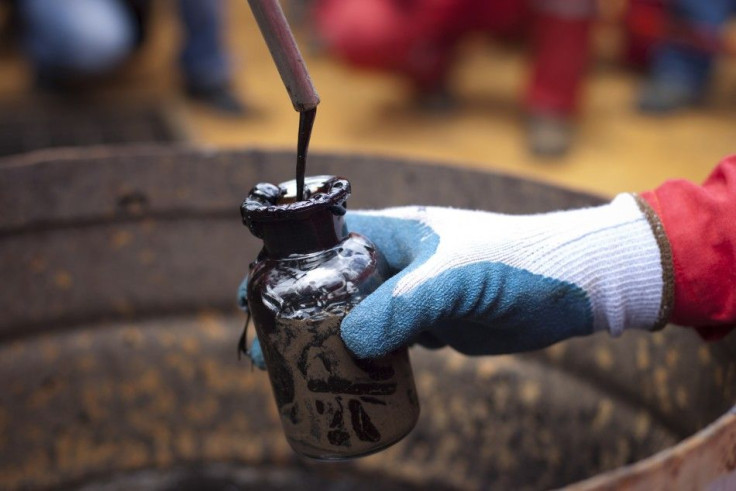Brent Crude Up Slightly as Irene Barrels on

Brent crude oil rose slightly in choppy trade on Friday as Hurricane Irene barreled toward the U.S. East Coast and traders weighed comments by U.S. Federal Reserve Chairman Ben Bernanke on the economy.
Bernanke gave a speech on the ailing U.S. economy that mentioned no new stimulus measures, pressuring both Brent and U.S. oil. Wall Street rebounded after initially extending losses after the speech.
Concerns that Hurricane Irene may disrupt gasoline and diesel supplies helped lift Brent and limited the dip by U.S. crude prices.
Brent October crude rose 44 cents to $111.06 a barrel by 1:13 p.m. EDT, having swung from $109.30 to $111.29.
U.S. October crude fell 40 cents to $84.90 a barrel, having recovered from an intraday low of $82.95.
Thin crude trading volumes contributed to the volatility. Brent was outpacing U.S. trading, but both were below 350,000 lots traded and substantially below their 30-day averages.
In his speech at the Fed's annual retreat in Jackson Hole, Wyoming, Bernanke said it was clear, the recovery from the crisis has been much less robust than we had hoped.
But he did not announce any new stimulus measures even though a U.S. government report revised second quarter economic growth lower on Friday.
A separate report showed the Thomson Reuters/University of Michigan consumer sentiment index fell to 55.7 this month from 63.7 in July, slightly better than August's preliminary reading of 54.9, the lowest level since May 1980.
The bigger picture here is that Bernanke appears to have enough confidence that the economy is not going to worsen and so he thinks there is no need for a QE3 at this time, said Andy Lebow, broker at MF Global in New York.
Lebow pointed to the stock market bouncing back after an initial move lower on the speech, and don't forget the oil markets are still awaiting the East Coast arrival of Hurricane Irene.
At last year's Jackson Hole meeting, Bernanke hinted at what eventually became a $600 billion quantitative easing bond-buying program. Many analysts said the stimulus helped support the economy but also boosted prices of many commodities, stoking inflation.
Hurricane Irene aimed at the U.S. East Coast refineries, a potential threat to supply, and the ongoing conflict in OPEC-member Libya and international pressure on Syria also underpinned oil market sentiment.
But many investors focused on worries about the economic outlook. Deutsche Bank joined a growing chorus of banks in downgrading oil price forecasts, trimming its Brent forecast for 2011 to $112 a barrel from $114 a barrel and U.S. light crude to $94 a barrel from $100.
We now believe that the economy is likely to grow more slowly in 2011-2012, Deutsche Bank's Adam Sieminski said in a note.
A Reuters poll of analysts showed oil prices were expected to stay above $100 a barrel next year despite increasing downward pressure from the expected return of some Libyan production and fears of a double-dip recession.
Euro Zone, Hurricane
Economic problems in Europe also kept investors cautious. The Spanish economy grew at a slower pace in the second quarter than the first, fueling concerns Spain could slip back into recession if the euro zone economy continued to worsen.
That news followed Tuesday's report that German consumer sentiment fell slightly going into September, hitting a 10-month low.
MF Global said in its daily report that it expected refineries in the path of Hurricane Irene to withstand winds from the storm and not shut down for now.
The U.S. East Coast region has no major oil and gas production like the hurricane-prone Gulf Coast. But the region has around a dozen nuclear plants and a massive oil delivery hub at New York Harbor. Its pipelines and power networks serve more than 100 million Americans.
(Additional reporting by Gene Ramos in New York, Zaida Espana in London and Seng Li Peng in Singapore; editing by Marguerita Choy)
© Copyright Thomson Reuters 2024. All rights reserved.





















